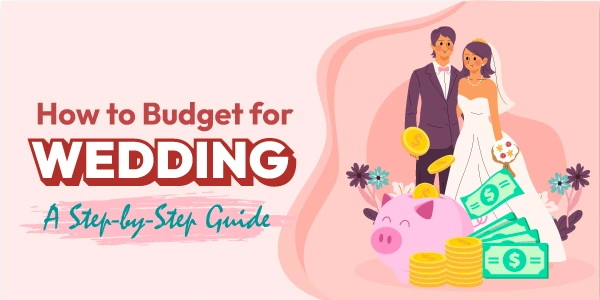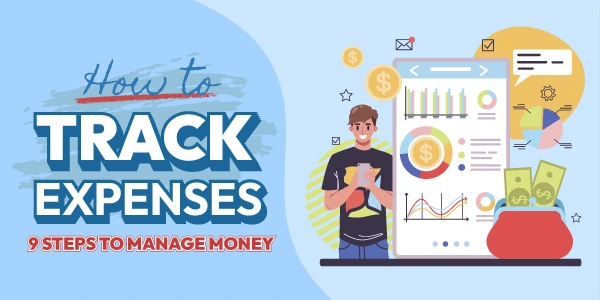Zero-Based Budgeting: What is It and How to Create it?
Have you ever wondered where all your money disappears by the end of the month—even when you thought you were careful? You’re not alone. Many people use a traditional budget that simply lists income and expenses but doesn’t account for every dollar. The problem? Money slips through the cracks.
That’s where zero-based budgeting comes in. This powerful method gives every single dollar a job, so you know exactly where your money is going. Whether you’re trying to pay off debt, save for a big goal, or simply stop living paycheck to paycheck, zero-based budgeting can transform your financial life.
In this blog post, I will dive you to understanding the zero base budgeting method and how to make budgeting by using this method for helping to to exit this overspending zone.
What is Zero-Based Budgeting
Zero-based budgeting (ZBB) is a system where your income minus expenses equals zero. That doesn’t mean you spend all your money. Instead, it means every dollar has a purpose—whether it’s for bills, savings, debt payments, or even fun money.
Unlike traditional budgeting methods that use last month’s spending as a starting point, zero-based budgeting starts from scratch every month. You don’t assume anything. You simply take your income and make a plan for how every dollar will be spent, saved, or invested.
Create Zero-Based Budgeting: In only 5 Steps
Creating a zero-based budget may feel intimidating at first, but once you break it down, the process is simple and repeatable every month. Think of it as giving yourself a clear financial roadmap instead of driving blind. Let’s walk through it in detail:
Step 1: List Down all Your Income
The first step is knowing exactly how much money you have to work with. You can’t make a spending plan without a clear picture of your income. Write down every source of net income; all money you expect to receive this month—not just your paycheck.
This includes:
Why it matters: If you underestimate your income, your budget will always feel too tight. If you overestimate, you’ll overspend. Knowing your true monthly income sets the foundation for everything that follows.
Tip: If you have an irregular income, base your budget on the lowest reliable monthly income. That way, you’re never caught short during a slow month.
Step 2: List Down all Your Expense
Next, you need to identify where your money is going. Expenses are the moving parts of your budget, and being thorough here prevents surprises later. Break your spending into three groups: fixed expenses; variable expenses; irregular expenses.
Why it matters: Many budgets fail because people forget about “hidden” or irregular expenses. When those costs pop up, they swipe a credit card to cover them. Listing all expenses upfront keeps you prepared.
Tip: Review your last 2–3 months of bank statements to capture spending you might overlook—like that subscription you forgot you had.
Step 3: Prioritize Savings and Debt Payments
Once you’ve got income and expenses listed, it’s time to decide what matters most. With zero-based budgeting, savings and debt are treated as priorities, not leftovers. This means you set aside money for your goals before you think about non-essential categories. Focus on:
Why it matters: If you only save or pay down debt with “whatever is left,” chances are you’ll make little progress. Prioritizing ensures your future is taken care of before lifestyle spending eats up your paycheck.
Tip: Choose a debt payoff strategy (Debt Snowball for motivation, Debt Avalanche for savings on interest) and build it right into your budget.
Step 4: Assign Every Dollar a Job
Here’s where the method gets its name. Take your income and deliberately assign every single dollar to a category until there’s nothing left unplanned. Remember—this doesn’t mean you spend it all. Some of those dollars are jobs like “sit in savings” or “go to debt.”
Why it matters: Unassigned money has a habit of vanishing into impulse purchases. By giving every dollar a job, you’re telling your money exactly what to do instead of wondering where it went.
Example: If you earn $3,500, you might allocate:
By the end, your plan should look like this:
$3,500 income – $3,500 expenses = $0.
Tip: If you feel stuck, start with essentials (housing, food, transportation), then add savings/debt, and finish with discretionary spending.
Step 5: Track and Adjust Throughout the Month
Your budget isn’t a one-time document—it’s a living plan. Life doesn’t always go as expected. You might spend more on groceries one week but less on gas. Instead of quitting when things don’t go perfectly, shift a tracking expense from one category to another to keep your plan balanced.
Why it matters: Without tracking, you’ll fall back into old habits. Adjusting regularly gives you control instead of guilt when expenses shift. A budget should work for you, not against you.
Tip:
Zero-Based Budget Calculator
I have create this Calculator to help everyone to create Zero-Base Budgeting much more easy. This budget calculator will help you to give your money a job and can be download it as excel file by yourself.
Input your total net income, and all your expense, and the calculator will automatically calculator your balance until Zero-Base. Finally you just have to click “Download as CSV” the system will download as excel file to you computer.
Expenses
Balance: $0
✅ File downloaded! You can open it in Excel.
Common Challenge for ZBB
There are some common challenge when you use Zero-Base Budgeting method:
Zero-Based Budgeting vs Other Methods
Zero-based budgeting isn’t the only way to manage money. In fact, there are several popular budgeting styles, each with its own strengths and weaknesses. Some people prefer the simplicity of percentage-based rules, while others like the structure of cash envelopes or traditional category tracking.
By comparing it with other approaches, you’ll see why ZBB is often called one of the most intentional and effective systems—but also why it might not be the perfect fit for everyone.
1. Zero-Based Budgeting vs. the 50/30/20 Rule
The 50/30/20 rule offers a quick way to split your income—50% for needs, 30% for wants, and 20% for savings. While it’s easy to follow, it doesn’t offer much flexibility or detail. Zero-based budgeting gives you complete control by assigning every dollar to a specific purpose. This helps you prioritize better, cut waste, and customize your budget to fit your real-life needs.
Advantages of Zero-Based Budgeting over 50/30/20 Rule:
2. Zero-Based Budgeting vs. Envelope System
The envelope system is great for controlling spending through physical cash categories, but it’s not always practical today. Zero-based budgeting provides the same spending control without needing physical money. It works perfectly with digital payments, and it also includes savings, debt payoff, and other financial goals that the envelope system often overlooks.
Advantages of Zero-Based Budgeting over the Envelope System:
3. Zero-Based Budgeting vs. Pay Yourself First
Paying yourself first means saving before spending, which builds strong habits. But it often stops there, without tracking how the rest of your money is used. Zero-based budgeting includes savings as a priority but goes further—it helps you plan and track all your expenses so you know exactly where your money is going each month.
Advantages of Zero-Based Budgeting over Pay Yourself First:
Who Should Use Zero-Based Budgeting
While zero-based budgeting can work for just about anyone, it’s especially powerful for people who want structure and clarity in their finances. Some people prefer a looser system, but if you’ve ever felt like money disappears before you can use it, this method could be the solution. Here are the groups who can benefit most:
Tools and Apps
You don’t have to build a ZBB from scratch. Here are some tools that make it easier:
Final Thought
Zero-based budgeting is more than just a financial method—it’s a mindset shift. Instead of letting money “disappear,” you decide exactly where it goes. That clarity helps you eliminate waste, fund priorities, and finally feel in control of your financial future.
The first month might feel overwhelming, but stick with it. Once you get used to assigning every dollar a job, you’ll see how freeing it actually is.
Pro tip: If you want, I can also create a downloadable zero-based budgeting template (Excel/Google Sheets) to include as a freebie on your blog post to boost engagement.

NowBetterMONEY, where is a hub shares practical tips on budgeting, saving, and debt management. I uses a personal finance tracker to monitor spending and savings, helping readers take control of their finances and build long-term financial stability with simple, actionable strategies. Author Bio


